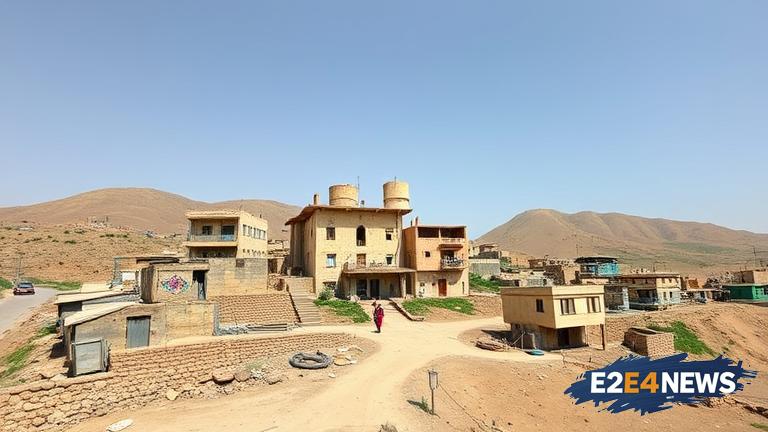The Syrian Druze community has been facing significant challenges in recent years, with many of its members displaced or affected by the ongoing conflict in the country. In a recent statement, Al-Hijri, a prominent figure in the Druze community, called for the establishment of a separate region for the Syrian Druze, citing the need for protection and self-governance. This move is seen as an attempt to safeguard the community’s interests and ensure its survival in the face of uncertainty. The Druze community has historically been a minority group in Syria, making up around 3% of the population. Despite their small numbers, the Druze have played a significant role in Syrian society, with many holding important positions in government, business, and the military. However, the conflict in Syria has put the community in a precarious position, with many Druze forced to flee their homes or take up arms to defend themselves. The call for a separate region is not a new development, with some Druze leaders having advocated for autonomy or independence in the past. However, Al-Hijri’s statement has brought renewed attention to the issue, with many seeing it as a necessary step to protect the community. The Syrian government has not yet responded to Al-Hijri’s call, but it is likely to be met with resistance from the authorities. The establishment of a separate region would require significant changes to the country’s constitution and governance structure, which could be difficult to implement. Nevertheless, the Druze community remains hopeful that their demands will be heard and that they will be able to achieve some form of autonomy or self-governance. The international community has also been called upon to support the Druze community, with many arguing that their rights and interests should be protected. The situation in Syria remains complex and uncertain, with many different factions and interest groups vying for power. The Druze community is just one of many groups affected by the conflict, but their call for a separate region highlights the need for a more nuanced and inclusive approach to resolving the crisis. As the conflict continues, it is likely that the Druze community will face further challenges and difficulties. However, with the support of the international community and the determination of its leaders, the community may be able to achieve its goals and secure a safer, more stable future. The Druze community’s call for a separate region is also seen as a way to preserve their unique culture and traditions, which are an important part of Syrian heritage. The community has a distinct history and identity, with their own language, customs, and beliefs. The establishment of a separate region would allow the Druze to maintain their cultural autonomy and protect their way of life. Furthermore, the call for a separate region is not just about the Druze community, but also about the broader implications for Syria and the region. The conflict in Syria has had far-reaching consequences, with many countries in the region affected by the crisis. A separate region for the Druze could potentially provide a model for other minority groups in the region, who are also seeking greater autonomy or self-governance. In conclusion, the Syrian Druze community’s call for a separate region is a complex and multifaceted issue, with significant implications for the community, Syria, and the region. While there are many challenges and uncertainties ahead, the community remains hopeful that their demands will be heard and that they will be able to achieve some form of autonomy or self-governance. The international community has a critical role to play in supporting the Druze community and promoting a peaceful, inclusive resolution to the conflict in Syria. With patience, persistence, and the right support, the Druze community may be able to build a brighter, more secure future for themselves and their children. The situation in Syria is constantly evolving, with new developments and challenges emerging every day. The Druze community’s call for a separate region is just one aspect of the broader crisis, but it highlights the need for a more comprehensive and inclusive approach to resolving the conflict. As the international community continues to grapple with the challenges posed by the Syrian crisis, it is essential that the rights and interests of all communities, including the Druze, are taken into account. By working together and supporting the Druze community, it may be possible to build a more peaceful, stable, and prosperous future for all Syrians.
